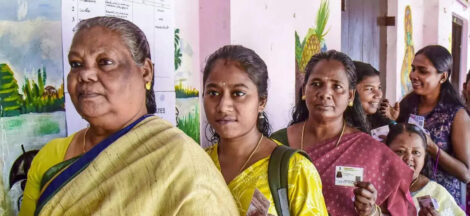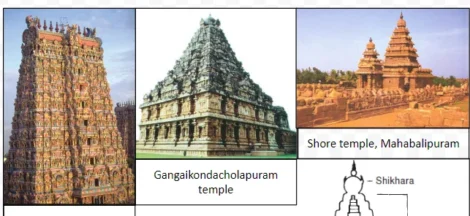By
Amritananda Chakravorty
On
8th January, 2019, after much anticipation, the Supreme Court gave its verdict
on the removal of Alok Verma as CBI Director, wherein the three judge bench
headed by the Chief Justice Ranjan Gogoi quashed the order dated 23.10.2019
passed by the Central Vigilance Commission (‘CVC’) divesting the powers,
functions, duties, supervisory role, etc of Mr. Verma as the CBI Director.
Similar orders passed by the Department of Personnel and Training, Ministry of
Personnel, Public Grievances and Pensions were also quashed. This marks a
curtain on one of the most sordid episodes in the government interference in
the CBI’s functioning in India.
As
is well-known, in October, 2018, there were reports that Mr. Verma had received
a complaint pertaining to corruption in the Rafale deal, and was about to
conduct a preliminary enquiry, when he was divested of his duties and sent on
temporary leave by the Central Government, in a completely illegal and
arbitrary manner, and in violation of the statutory rules.
The
appointment of the CBI Director is specified in Section 4A of the Delhi Special
Police Establishment Act, 1946 (‘DSPE’), which states that the CBI Director
shall be appointed by the Central Government on the recommendation of a
High-Powered Committee consisting of the Prime Minister (Chairperson), Leader
of Opposition (Member), and the Chief Justice of the Supreme Court, or a Judge
nominated by him. Section 4B mandates that the tenure of the CBI Director shall
be for a period ‘not less than two years’ from the date he/she assumes office,
and he/she cannot be transferred without the prior consent of the said
Committee, pursuant to the directions of the Supreme Court in Vineet Narrain v.
Union of India [(1998) 1 SCC 226]. Thus, the CBI Director enjoysstatutory
protection for his/her tenure of two years, and cannot be removed or
transferred by the Government, without the prior permission of the Committee.
While
the Government argued that Alok Verma was not transferred, and only divested of
his duties for temporary period so the permission from the Committee was not
required, the Petitioner argued that removing from the post was in effect a
‘transfer’ within the meaning of Section 4(B), DSPE Act, and was done in a
total illegal and arbitrary manner. Upholding the Petitioner’s contentions, the
Supreme Court held that “the clear legislative intent in bringing the aforesaid
provisions to the statute book are for the purpose of ensuring complete
insulation of the office of the Director, CBI from all kinds of extraneous
influences, as may be, as well as for upholding the integrity and independence
of the institution of the CBI as a whole”. The Court also further held that “if
the legislature intent would have been to confer in anyauthority of the State a
power to take interim measures against the Director, CBI thereby affecting his
functioning, surely, the legislation would have been differently worded and
drafted”.
The
word ‘transfer’ has to be interpreted in a broad manner, in order to prevent
the State from interfering with the CBI Director’s functioning by adopting
various methods, which may not amount to ‘transfer’, but still have the same
effect as ‘transfer’.
The
Supreme Court thus reinstated Alok Verma as the CBI Director, and asked the
Government to take the Committee’s consent before taking any action. The
Committee has to meet within one week of the date of judgment, and consider the
materials placed by the Government. Meanwhile, Alok Verma is refrained from
taking any major policy decision. The committee has held one meeting already.
It
is noted that though the Supreme Court reinstated Alok Verma, the riders placed
on his tenure and the fact that Mr. Verma lost 77 days of his tenure, and the
Court has not commented on that fact dilutes the real effect of the judgment.
And even the delay in giving the decision is problematic. The Court did not
take the Government to task for passing a patently illegal order, and that too
to prevent the CBI Director from initiating an investigation in the Rafale
allegations makes it evident that the Court pretended that this was a
simpliciter question of wrong transfer, and not an attempt by the Government to
totally destroy the CBI’s institutional autonomy.
The
allegations made against Rakesh Asthana or the fact that Mr. Asthana was using
the office of CBI to target opposition leaders or threaten with false
prosecution are not factored in. Despite the Court’s order that the interim
Director, Mr. Nageshwar Rao, would take no major policy decision, he
transferred all the CBI officers who were investigating Mr. Asthana, and those
decisions were not quashed by the Court. It is another matter that Mr. Verma,
upon resuming office on 9th January, 2019, rescinded the said orders of the
transfers. All these instances show that the Court should have dealt with this
matter in a more sensitive and apt way, and ought to have come down heavily on
the Government to interfere with the administration of justice.
Mr.
Verma is still not out of the woods, since the Committee would consider the
‘non-existent’ allegations against him, which the CVC had given to the Supreme
Court in a ‘sealed cover’. The Court ought to have noticed that the Committee
consists of the Prime Minister, against whom allegations have been made and
which Mr. Verma sought to investigate. This is a clear conflict of interest
here.
It
is hoped that this Verma case is a lesson to all the governments not to tamper
with the CBI’s autonomy or to interfere with its Director’s tenure. It’s also a
learning for the CVC that it ought to supervise the CBI’s functioning in an
independent and impartial manner, and not act as a government’s mouth-piece.
Most importantly, the Court has to understand that these are not cases of
‘individuals’ or ‘their egos’, as it was made out to be, but they relate to the
heart of the institutional autonomy and governance of this country. Without CBI
and CVC being independent, the governance structure will collapse, and that
cannot be allowed to happen. (IPA
Service)
The post Reinstatement Of CBI Director Is A Big Indictment Of Modi Govt appeared first on Newspack by India Press Agency.



